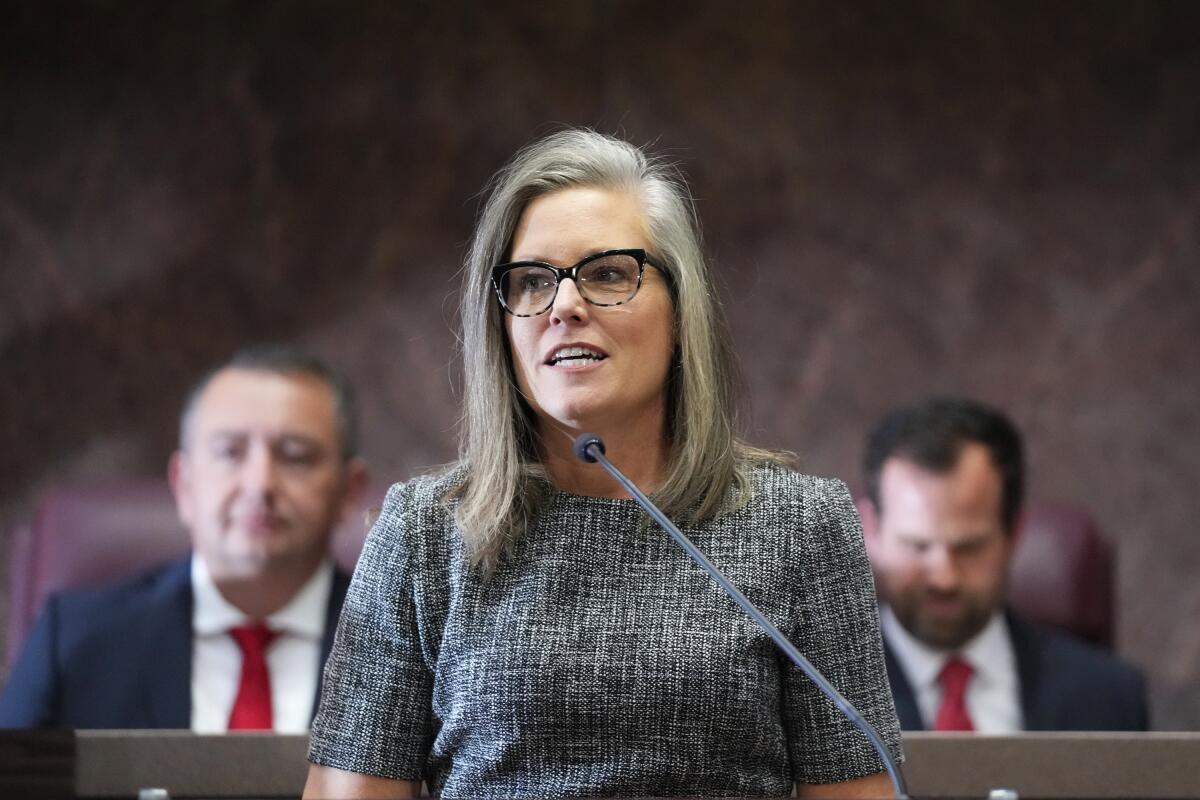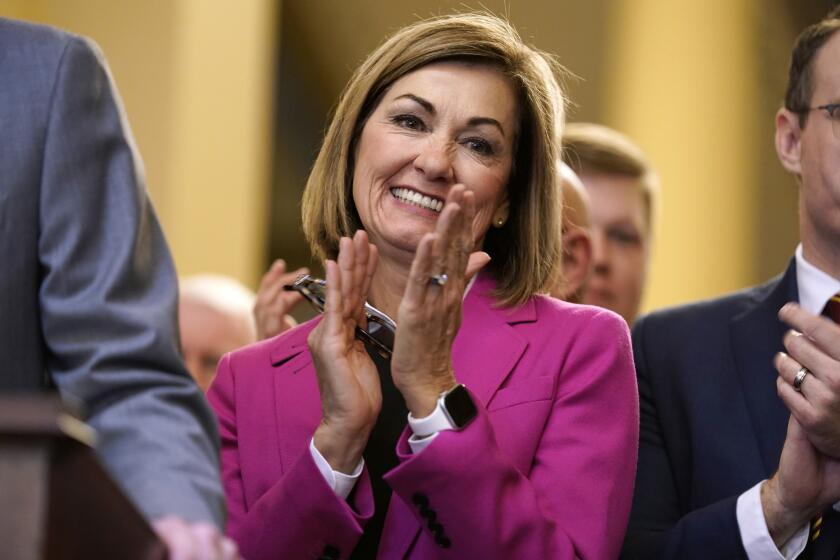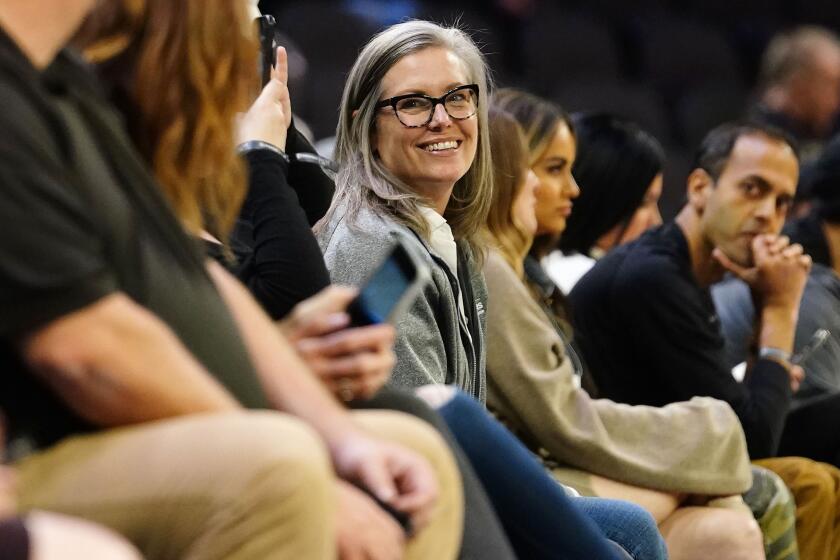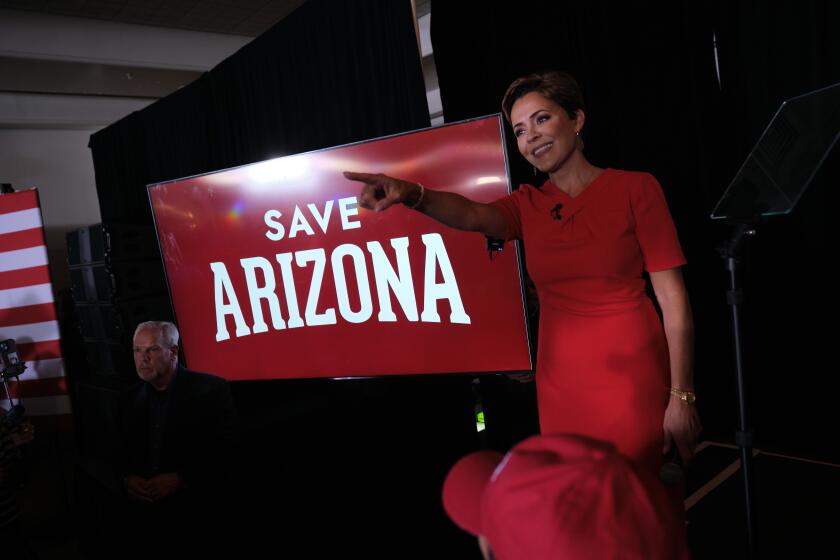Why ‘school choice’ was doomed when it became a cover for segregation

- Share via
Camille Edelman is doing the best she can.
Even with her and her husband working, the Phoenix-area couple cannot afford to send their three special needs children to the specialized school best suited for them without financial assistance. And for more than a decade, that assistance was Arizona’s Empowerment Scholarship Accounts.
So why would Katie Hobbs, the state’s Democratic governor, want to take that away? She wouldn’t. But she might have to. She said last week that the program is on track to be about 50% over budget, costing taxpayers $1 billion. Republicans in the state predictably rushed to frame this fact as Hobbs ghoulishly preying on families in need.
Opinion Columnist
LZ Granderson
LZ Granderson writes about culture, politics, sports and navigating life in America.
The reality is that families like the Edelmans are caught in a decades-long political tug of war that’s barely about education, sort of in the way that the Civil War was about “states’ rights.” This nationwide struggle is really about race, and it’s coming to a head in certain places because of money.
Arizona’s previous administration budgeted only $624 million for the voucher program the Edelmans use, which is about $320 million short of what’s needed. Keeping that program pushes the state’s budget into the red. And while revenue shortfall is hardly a new conversation in any level of government, this time is likely to play out differently.
You should pay attention to Arizona, because its school finance battles could well be used to reopen a national debate about the Supreme Court decision Brown vs. Board of Education of Topeka.
Parental rights? Anti-wokeness? School vouchers? A national movement has public education in its sights.
It was after that 1954 decision outlawing public school segregation that the U.S. saw a boom in the number of religious private schools and universities. In the decades after the Brown decision, white students left public school in droves to avoid integration, particularly in the South. According to Forbes, between 675,000 and 750,000 white students enrolled in private schools located in former Confederate states during the early 1980s. Of that group, as many as 75% were in schools that were at least 90% white. For those who could not afford to pay out of pocket, vouchers were created. Under the guise of religious belief, parochial schools could discriminate for any reason.
What does all this have to do with the Edelmans? Mostly they’re just collateral damage seven decades later.
School choice was always a Trojan horse, a rebuke of the Brown decision. It was a system designed to use taxpayer dollars to fund “separate but unequal” schooling in the name of God.
The state’s new leader, a veteran of Trump-inspired recounts, has persuaded a judge to quash at least one wasteful round.
The reason Betsy DeVos wanted to be secretary of Education under President Trump was to push school choice nationally. Her family has used its wealth to promote a conservative Judeo-Christian theocracy in the schools and the government for decades. When her husband ran for the GOP nomination for governor in their home state of Michigan, school vouchers were key to his platform.
Proponents will tell parents it’s about moving kids from failing schools, but the history shows it’s about moving kids from integrated schools.
The current numbers show the same thing. More than 70% of Arizona’s school vouchers are going to the state’s wealthiest ZIP Codes. The state now offers the largest school choice voucher program in the country, and it is likely to face a referendum allowing voters to halt its expansion. Legal challenges are all but certain regardless of which side prevails, and religious justifications are inevitable.
Through most of the last 150 years, Arizona has been a geography of personal reinvention, ambitious and fraudulent schemes and hype that exceeded nature’s limits.
The Arizona program didn’t have to become Exhibit A for school-voucher abuses. It was intended for families that legitimately needed educational help they weren’t able to find through public schools. The budget deficit that Hobbs inherited is not caused by that function of the program. It’s a direct result of the previous administration ballooning its scope beyond foster kids and students with special needs, to become a vehicle for universal school choice.
“We have always started our kids in the public school system, but it never is a good fit,” Edelman said. “We end up pulling them into the specialized private schools to accommodate and support their needs.” Those schools allowed Edelman’s children to have specialized teachers in classrooms with lower student-teacher ratios.
But now the Edelmans are worried about whether they’ll be able to continue. Not because the current administration is out to get them, but because the former was only serving a political agenda.
More to Read
A cure for the common opinion
Get thought-provoking perspectives with our weekly newsletter.
You may occasionally receive promotional content from the Los Angeles Times.











